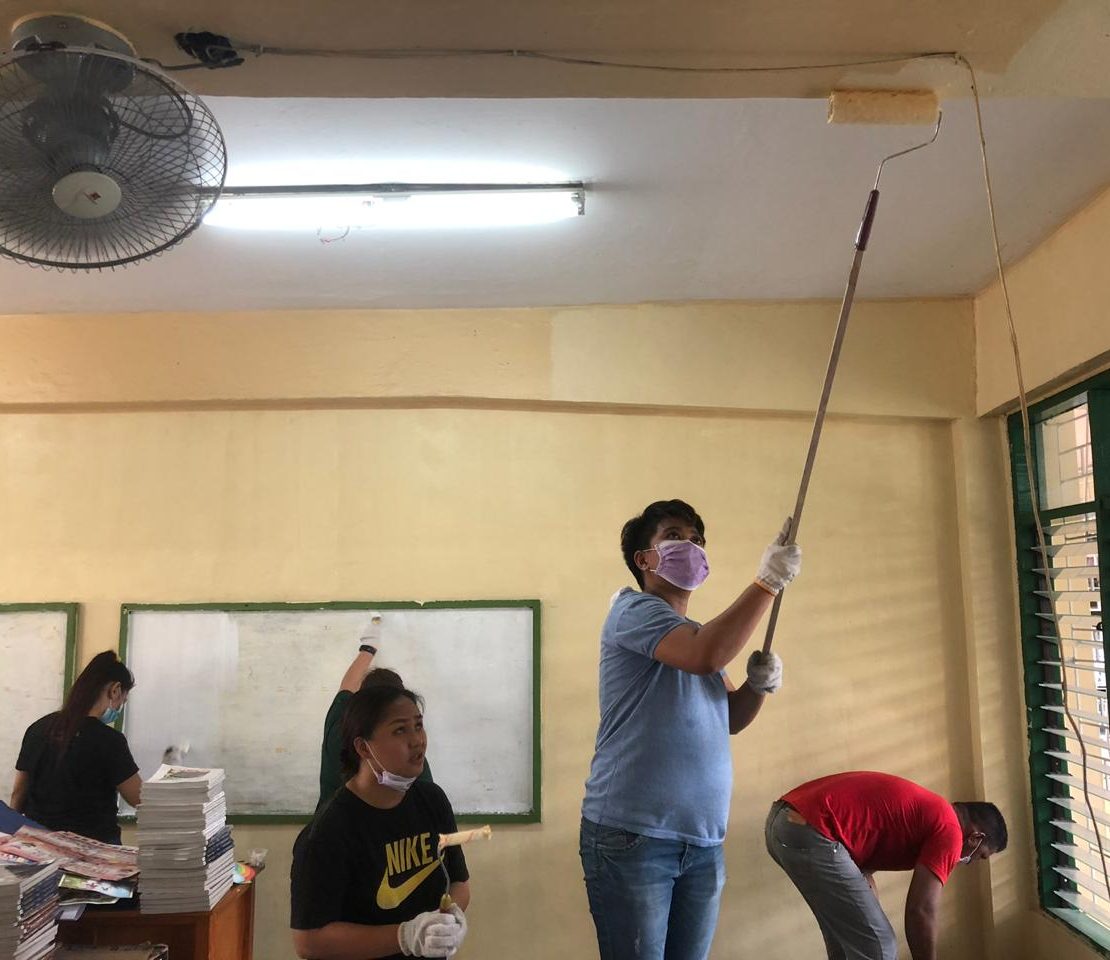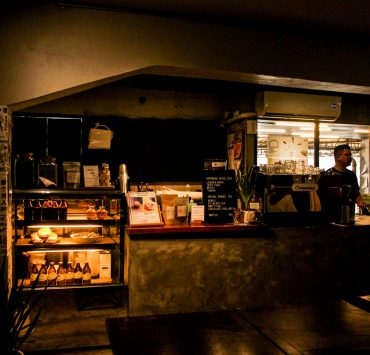Education is a human right and should be accessible to every Filipino. That is at least according to the Constitution. We know through experience and through the media that the reality, however, couldn’t be farther from the ideal.
Despite the existence of free education through public schools, many children are away from the classroom for various reasons. This is especially problematic in primary schools, a crucial part of learning and a stepping stone for future higher pursuits of education.
In 2017, a survey by the Philippine Statistics Authority revealed that nine percent of the population aged 6 to 24 years old are out-of-school. The leading cause? Lack of interest. But we know it’s more than that in reality. The next reason why (and perhaps the most telling) is that most Filipinos can’t really afford to go to school.
And even for those who are lucky enough to set foot in public schools, there are still challenges. For school year 2017-2018 for example, the Department of Education said the teacher to student ratio is pegged at 1:31 for the elementary level, 1:36 for Junior High School level, and 1:31 for Senior High School level. Far better than the previous 1:45 figure in the last few years. Though in urban areas like Metro Manila, the figures are far worse.
Cramped classrooms and subpar facilities
Another problem is the number of classrooms and the facilities—not to mention books—needed to make learning conducive. Despite being the largest recipient of allocations from the national budget, the same problems persist every school opening.
Most public schools in Metro Manila are implementing shifts to fit large student populations into whatever number of rooms they have. When such arrangements are made, of course, it negatively affects the way a child is able to understand what is being discussed as countless studies prove.
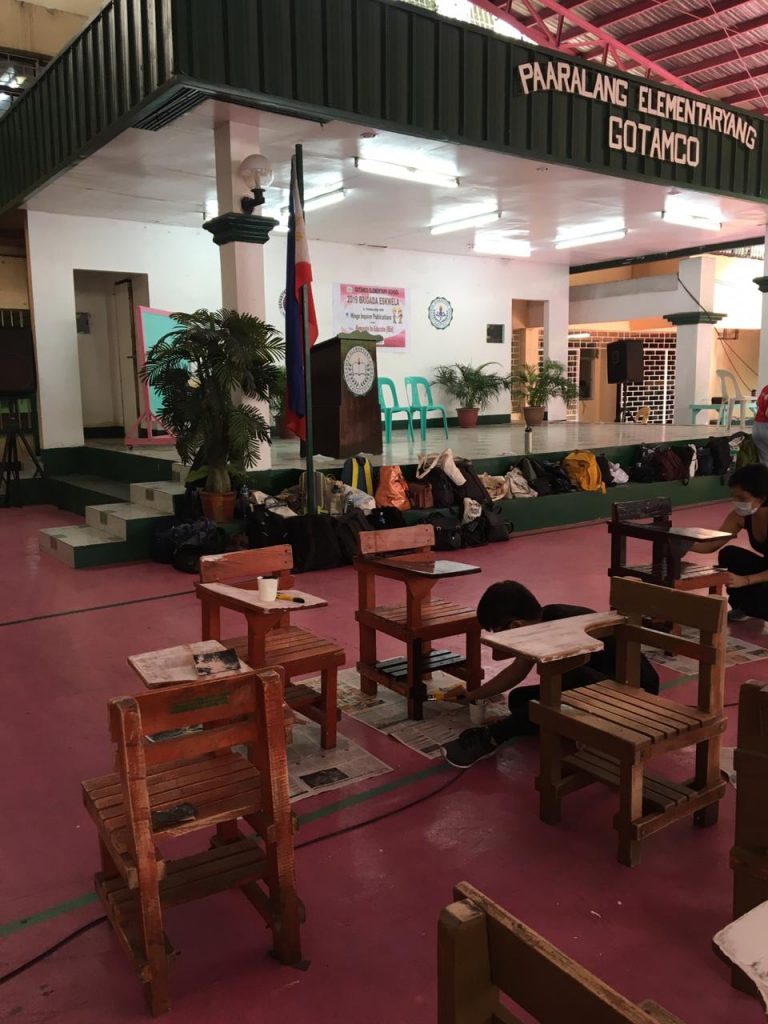
Gotamco Elementary School (GES) in Pasay is one of these institutions. 1,148 students, including kinder pupils, and 40 teachers share 40 classrooms. In order to fit all of them, they have to schedule morning and afternoon shifts. This number, however, is expected to change once the new school year kicks in with new enrollees replacing those who graduated.
Helping hands
Last May 3, our company, Hinge Inquirer, together with Renovate to Educate (REd), a non-profit organization who has been doing school work projects since 2006, teamed up to help GES get ready for Balik Eskwela 2019.
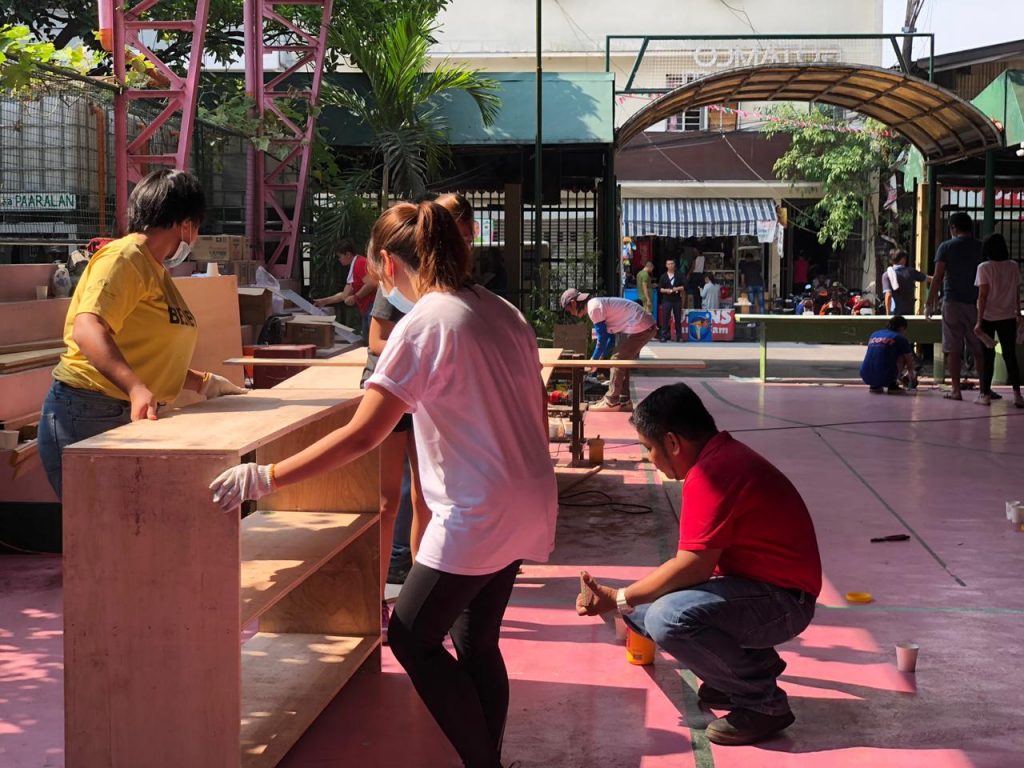
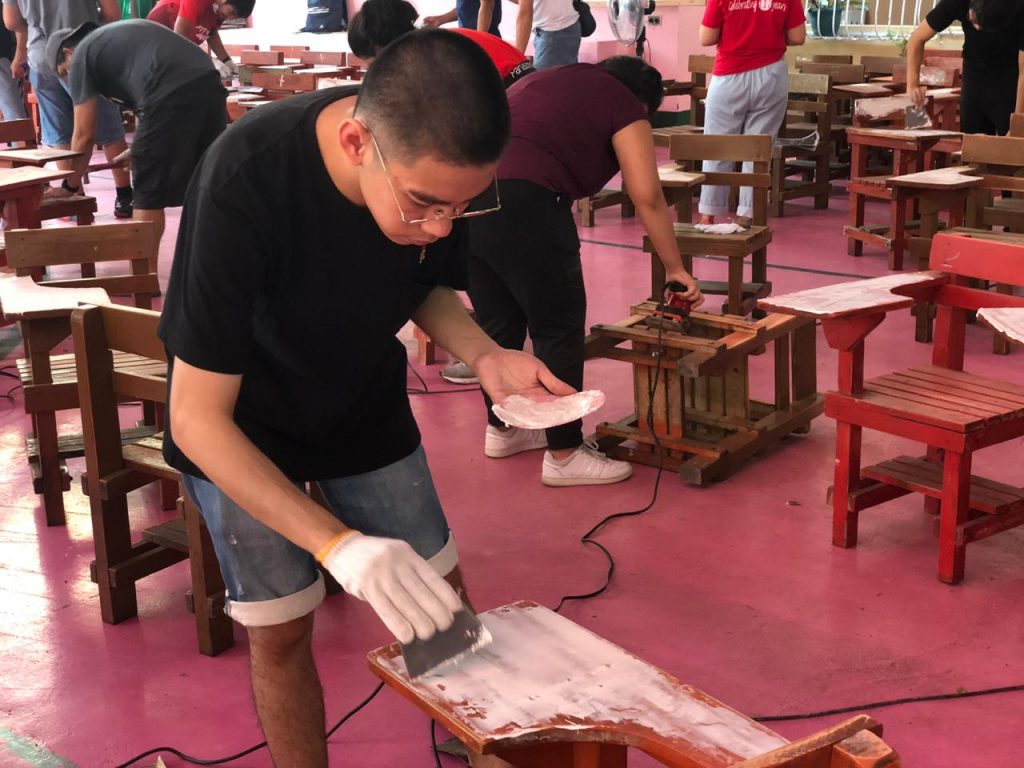
Acknowledging the importance of giving back, even in small ways like taking the time to help out in such causes, we set out to refurbish wooden armchairs, repaint classroom walls and blackboards, build library bookshelves and tables, and paint a corridor with a mural.
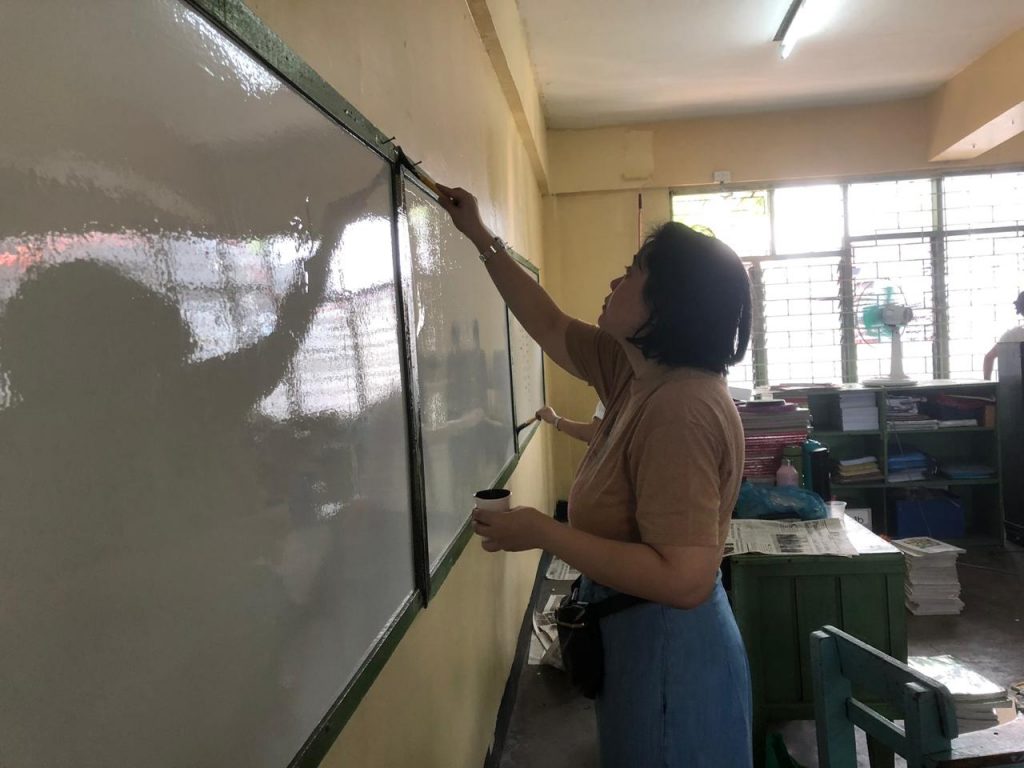
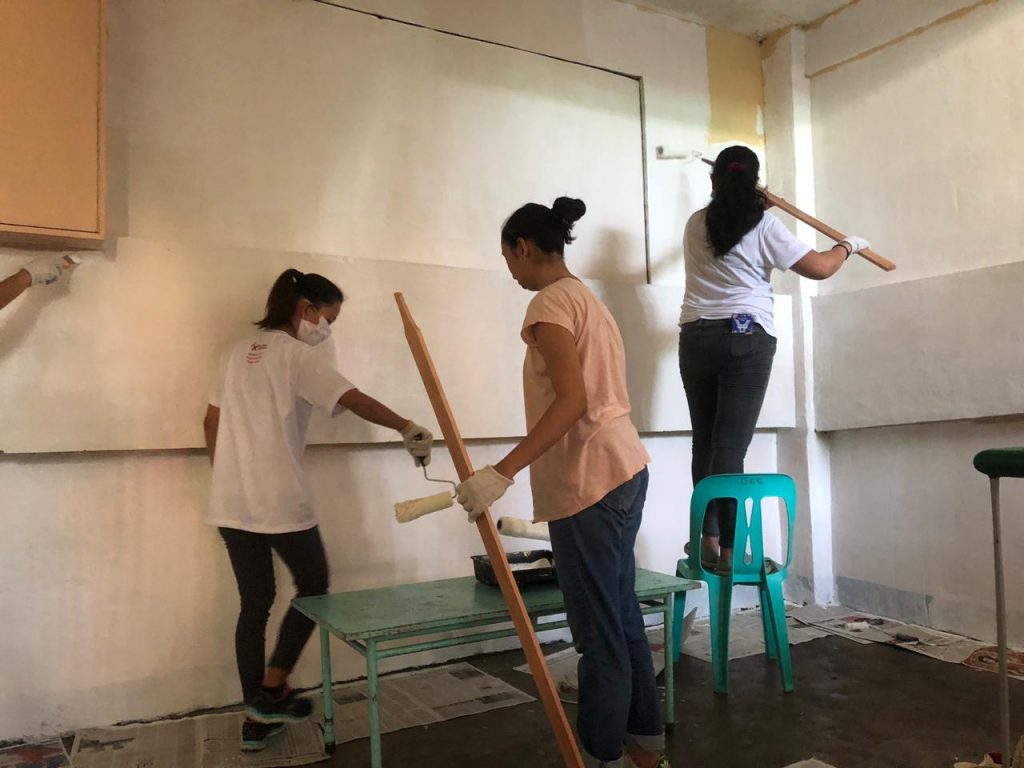
With the guidance of REd, which has worked with 65 schools in 14 provinces and 28 cities since their founding, we were able to repair and repaint 73 armchairs, two classrooms, 11 blackboards, and three classroom doors.
Libraries as integral parts of any educational institutions also benefited from the half day we spent in GES where we fabricated six bookshelves all from scratch. Four library tables which were previously dilapidated were also restored to a sturdy and almost-new state.
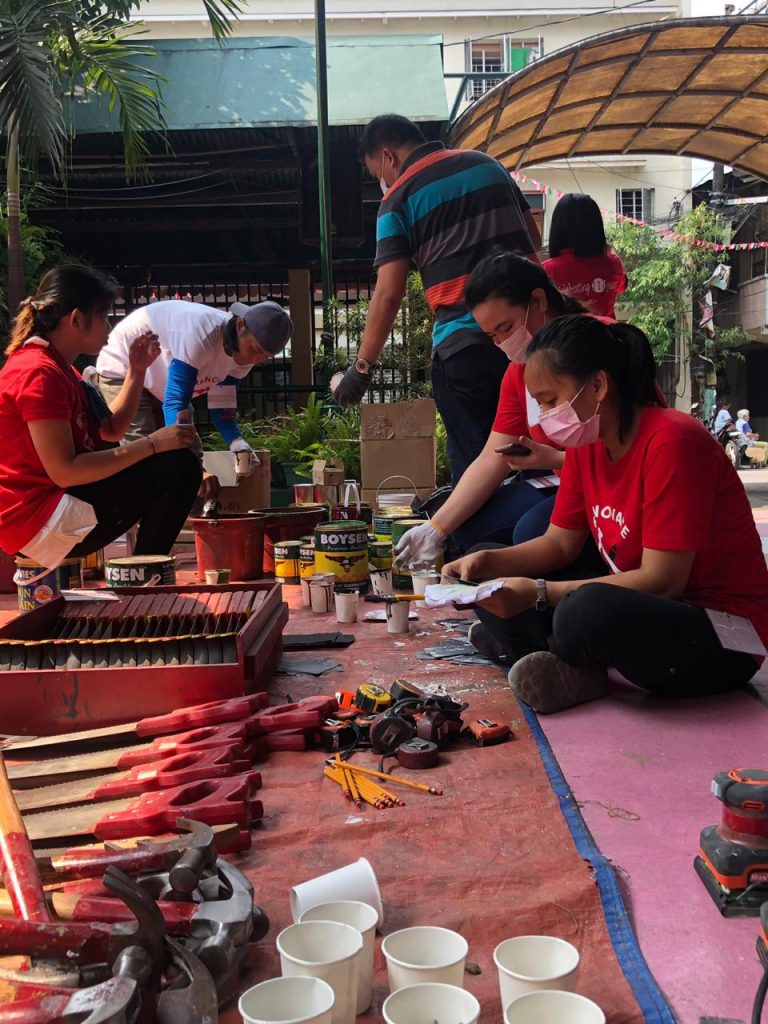
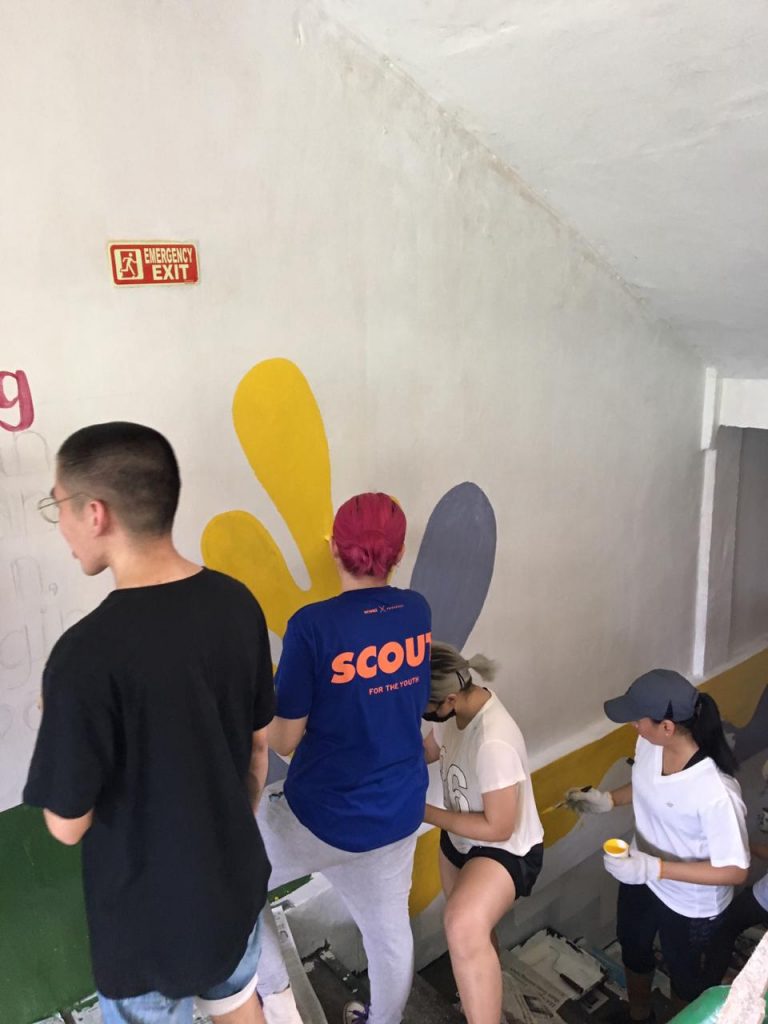
Exposure to art and colorful elements are also proven to stimulate learning so keeping this in mind, we transformed a dull-looking hallway into a vibrant one by painting its walls with murals.
It’s really easy to feel hopeless in the face of the problems plaguing the educational system of the country. But knowing that there are organizations and parties who willingly reach out and help in filling the gap left by misplaced government allocations, it makes us a little optimistic.


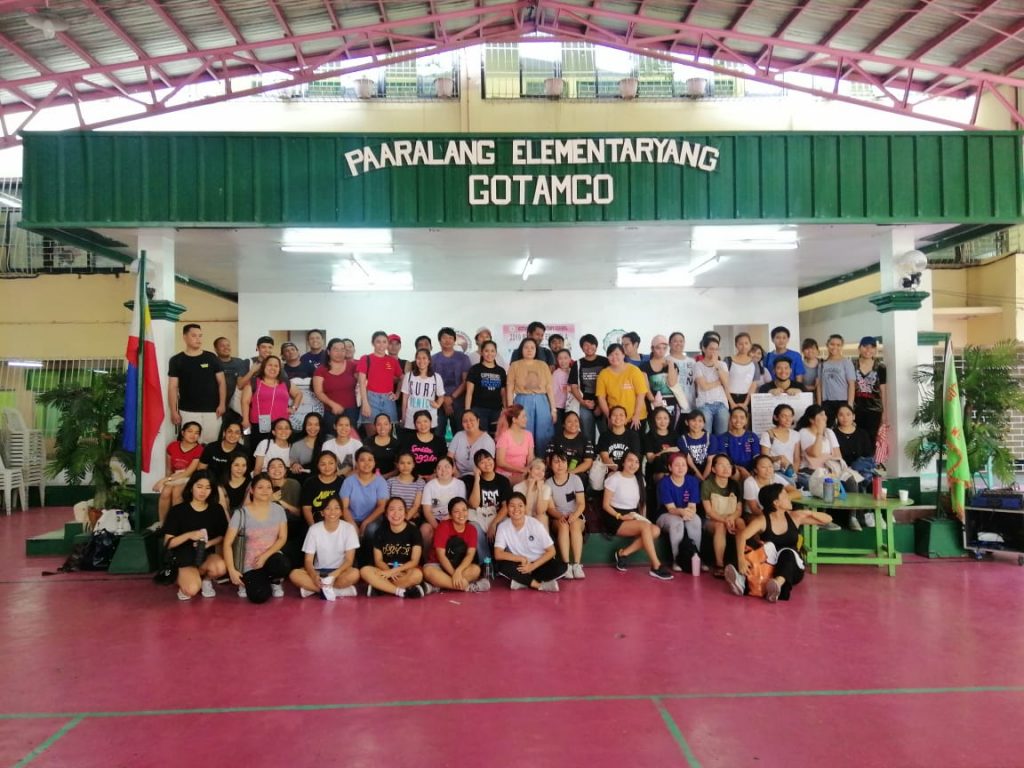
If you want to help out in Renovate to Educate’s Brigada Eskwela projects, check out their upcoming events or get in touch if you and your organization want to help out a specific school, through their website.
Read more:
Why education—in a good environment—is the solution to poverty
This “alternative arts school” is open to anyone interested in art—students, artists, or not
Gabaldon school buildings will now be protected—but who is Gabaldón?


